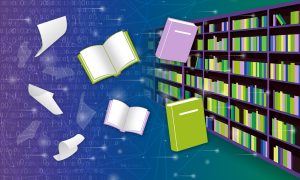
Sense makers: how standards are enabling data reuse
Data standards that have been silently enabling discovery in the life sciences for decades are now making AI advances possible.
PEOPLE & PERSPECTIVES2024
people-perspectivesperspectivesscience
Showing results out of

Data standards that have been silently enabling discovery in the life sciences for decades are now making AI advances possible.
PEOPLE & PERSPECTIVES2024
people-perspectivesperspectivesscience
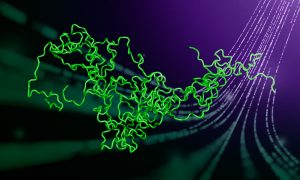
A third of all known proteins are either completely or partially unstructured. EMBL scientists contributed to a new set of guidelines – Minimum Information About a Disorder Experiment (MIADE) – that will help researchers share data on unstructured proteins in a more useful way and will enable…
SCIENCE & TECHNOLOGY2023
sciencescience-technology

New framework to improve the FAIRness of clinical and molecular datasets
2023
perspectives
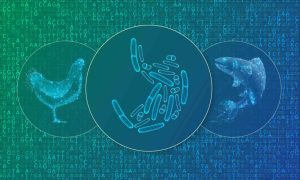
HoloFood, the first consistent collection of multiomic data about chicken and salmon gut microbiomes, set to enable the development of better animal feeds.
SCIENCE & TECHNOLOGY2023
sciencescience-technologytechnology-and-innovation

Postdoctoral researcher Carolin Sauer is leveraging long-read sequencing to develop new detection methods for various cancers.
LAB MATTERSPEOPLE & PERSPECTIVES2023
lab-matterspeople-perspectivesresearch-highlights
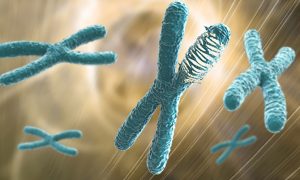
Understanding chromothripsis offers insights into how cancer develops.
SCIENCE & TECHNOLOGY2023
research-highlightsscience-technology

Why open data from model organisms is essential for rare disease research.
2023
perspectivesscience

Jo McEntyre talks about data services, open data and a new era for research assessment.
LAB MATTERSPEOPLE & PERSPECTIVES2023
lab-matterspeople-perspectivesperspectives
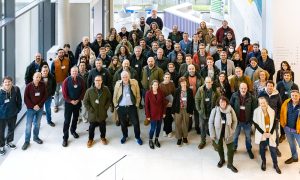
EMBL hosts inaugural meeting for major interdisciplinary project designed to boost understanding of ocean life
CONNECTIONSLAB MATTERS2023
connectionslab-matters
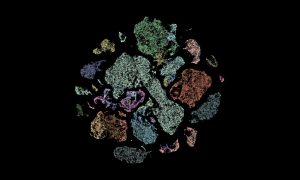
NIH BRAIN Initiative to fund brain atlases, network coordination, and knowledge sharing to explore brain function research.
2022
announcementsscience

How text mining collaborations benefit our research, data resources, and the wider scientific community.
SCIENCE & TECHNOLOGY2022
sciencescience-technologytechnology-and-innovation
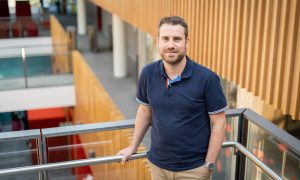
Peter Harrison discusses the importance of data accessibility and his passion for biodiversity and agricultural genomics.
LAB MATTERSPEOPLE & PERSPECTIVES2022
lab-matterspeople-perspectives

The GBC is a coalition of life sciences and biomedical research funders that aims to optimise the funding and management of biodata resources worldwide. The organisation has two priority aims: to better coordinate and share approaches for efficient management and growth of the biodata…
2022
announcements
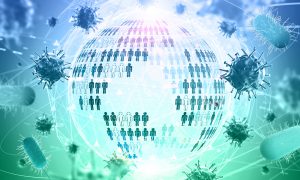
Researchers lay out a set of principles for open genomic data sharing or pathogens
SCIENCE & TECHNOLOGY2022
perspectivesscience-technology
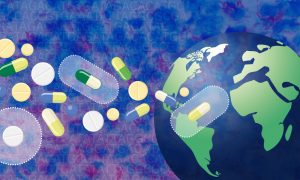
Zamin Iqbal and his team are working with researchers all over the globe to help put a stop to Tuberculosis
SCIENCE & TECHNOLOGY2022
perspectivessciencescience-technology
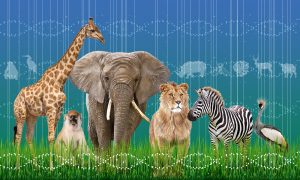
The African BioGenome Project aims to safeguard biodiversity and build bioinformatics capacity across Africa
SCIENCE & TECHNOLOGY2022
perspectivessciencescience-technology

Scientists urge the adoption of a sensible international policy for digital sequence information.
SCIENCE & TECHNOLOGY2022
announcementssciencescience-technology
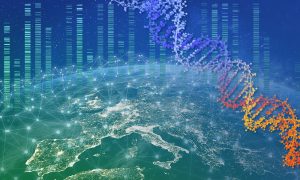
On track to reach an ambitious goal of 3,000 genomes sequenced by the end of 2022, what’s next for the Earth Biogenome Project?
SCIENCE & TECHNOLOGY2022
announcementssciencescience-technology
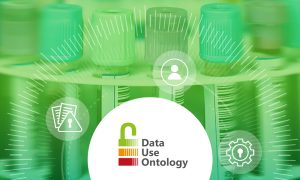
The GA4GH Data Use Ontology (DUO) supports a data authorisation and access framework to streamline consent to use biomedical data
SCIENCE & TECHNOLOGY2021
sciencescience-technology

The BY-COVID project aims to make infectious disease data, including COVID-19, openly available to everyone.
SCIENCE & TECHNOLOGY2021
sciencescience-technology
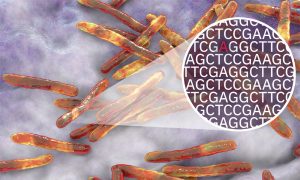
Profiling M. tuberculosis strains from 27 countries to reveal causes of drug resistance.
SCIENCE & TECHNOLOGY2021
sciencescience-technology
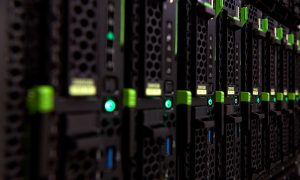
EMBL scientists will contribute to the new German COVID-19 OMICS Initiative to study the biological mechanisms contributing to coronavirus infections. EMBL group leaders Jan Korbel and Oliver Stegle, who is also affiliated with the DKFZ Heidelberg, will coordinate the set-up of IT infrastructures…
SCIENCE & TECHNOLOGY2020
sciencescience-technology

In March 2020, planes were grounded, streets went quiet, and our lives changed forever. But while the world came to a halt, many scientists were ramping up their efforts to understand the new virus.
SCIENCE & TECHNOLOGY2020
sciencescience-technology

The new collaborative space will help scientists, public health and healthcare professionals around the world to fight the coronavirus pandemic.
SCIENCE & TECHNOLOGY2020
sciencescience-technology
It was the world’s earliest public database of DNA and RNA sequences and remains Europe’s primary nucleotide sequence resource. The database is maintained by EMBL’s European Bioinformatics Institute in Hinxton (UK) in collaboration with its US and Japanese counterparts GenBank and…
LAB MATTERS2007
lab-matters
No results found